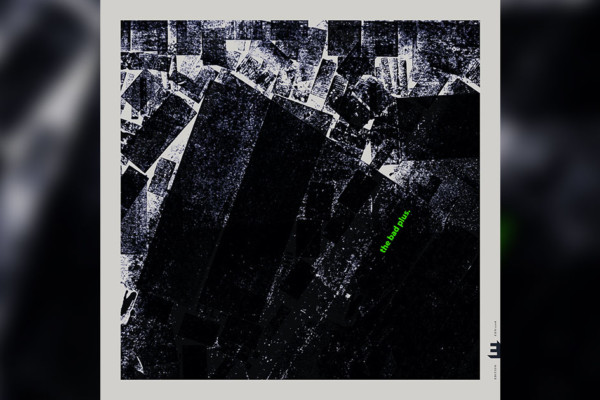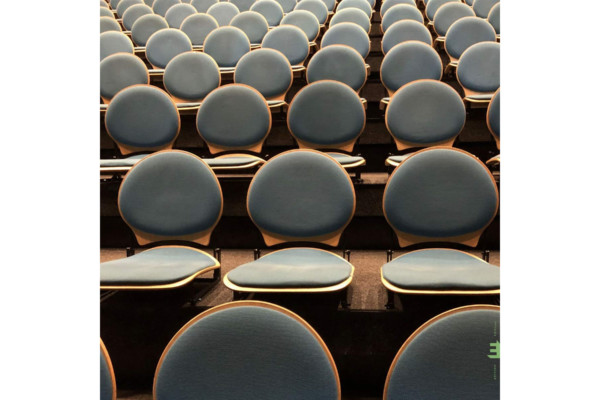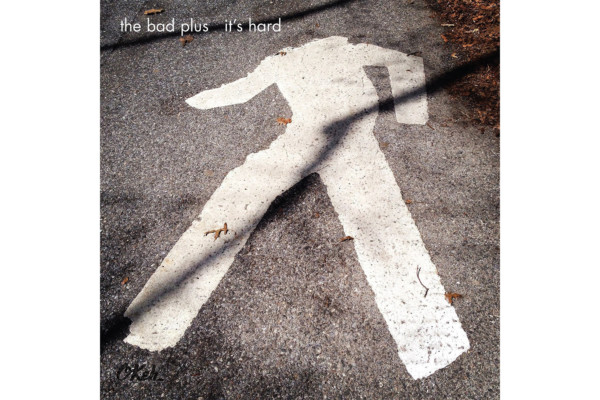The Bad Plus: An Interview with Reid Anderson
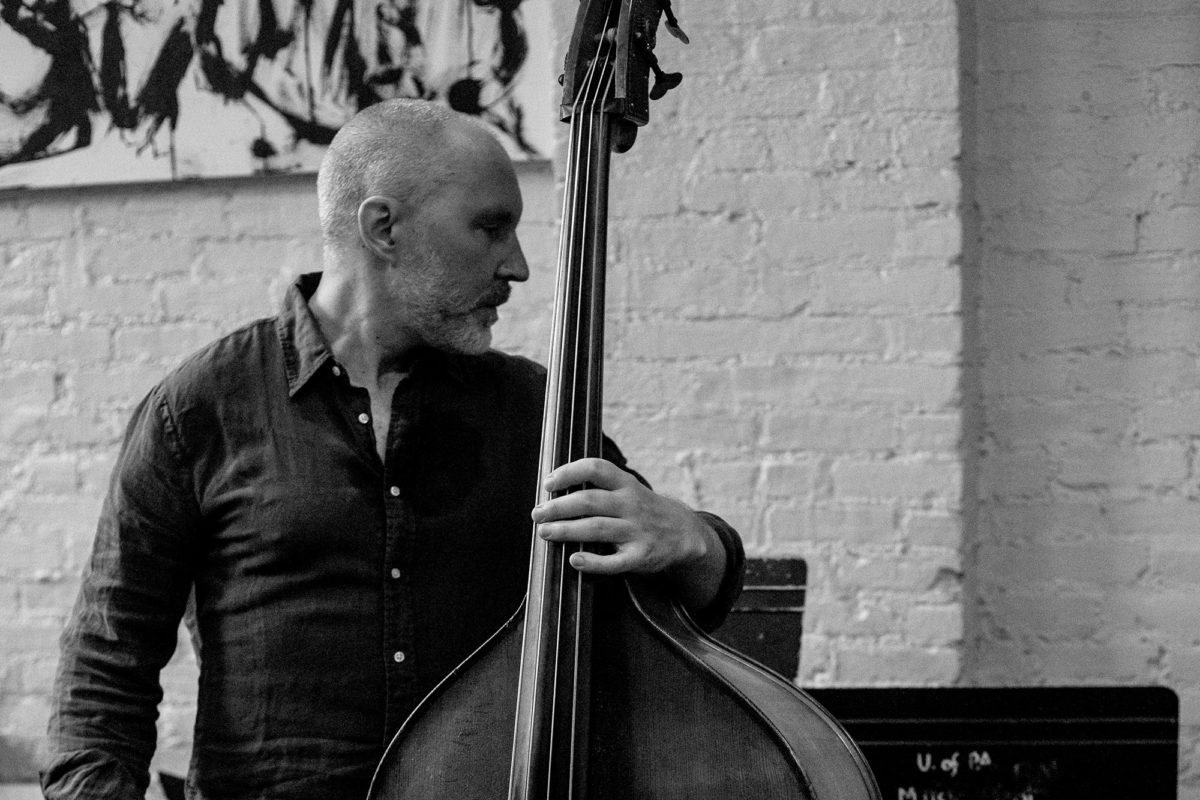
When The Bad Plus announced the departure of pianist Ethan Iverson in 2017, fans wondered how the trio could continue without him. Orrin Evans joined the fold and proved that their sound was more than just one person. The lineup has shifted once again in a more radical way as their instrumentation has gone from a piano trio to a quartet featuring guitarist Ben Monder and saxophonist Chris Speed.
Although the textures have evolved, the constants of drummer Dave King and bassist Reid Anderson – and their compositions – ensure that the band’s sound is intact. The proof is in their upcoming album, The Bad Plus, whose self-titled nature acts as a reaffirmation of their identity.
“We feel like we’ve pulled off a magic trick,” King says, “changing the lineup from a trio to a quartet with guitar and saxophone that still sounds coherent as The Bad Plus. Having two main composers was our greatest card to play. Our language remains, and that’s the magic.”
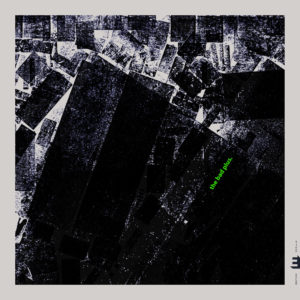 The record evokes the same wonder and mystery elicited from their earlier catalog, retaining their unique harmonic sense and driving rhythms. If anything, Monder’s guitar, and Speeds saxophone help to further the mixture of rock and jazz for which the group is known.
The record evokes the same wonder and mystery elicited from their earlier catalog, retaining their unique harmonic sense and driving rhythms. If anything, Monder’s guitar, and Speeds saxophone help to further the mixture of rock and jazz for which the group is known.
Anderson’s bass work helps to set the tone, whether it’s with roaming, melodic lines, or driving eighth notes on the root. Fans of the bassist may find the new Bad Plus sound familiar, as his solo album The Vastness of Space shares the same instrumentation – even including Monder himself.
Anderson spoke with us over Zoom about the band’s new direction, giving the music what it wants, and how the new lineup made him change his bass setup.
The Bad Plus will be available September 30th and is open to pre-order on CD and vinyl. The band will be on tour this fall in the U.S. and Europe.
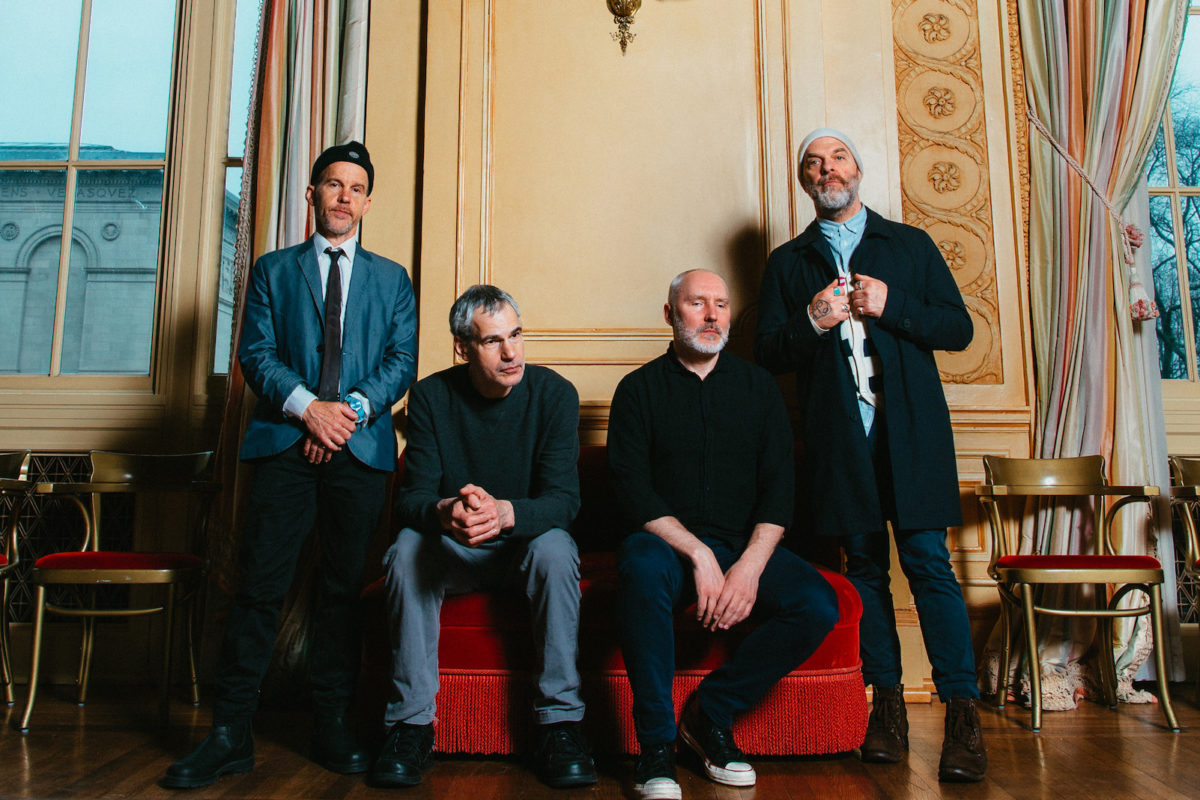
How did this new formation come together?
Orrin [Evans] decided he needed to move on and do his own thing. Dave and I quickly came to the conclusion that we wanted to keep going. I think we felt we had said what we could with piano, bass, and drums. We just wanted something different – a different vehicle to express ourselves with this music. We had a quick consensus that we wanted to have a guitar and saxophone. Ben and Chris are two people that we have longtime relationships with and whose music and playing we really love. Intuitively, it felt like the right fit, and fortunately, those guys were interested in doing it and being available for it. That’s pretty much how it came together. It was a clear path in terms of inviting those guys into the band. Then we had to make a record. [laughs]
It must be said that it’s a lot for anyone to come into the band. We have quite a body of work at this point, and also to learn all the new music for the record… The base line was that we wanted to be ready to play two full shows. That ends up being 20 tunes, at least. It’s a lot of information to take in. Chris and Ben are the kinds of guys that are down for that. They’re going to do the work, and they really care. That’s what it’s all about, really. Ultimately, that’s the band energy. We’re playing our music. Everybody has ownership of it; it’s not a sideman situation. Dave and I aren’t the band overlords. It’s our music, but the point is that we all own it at the end of the day.
I think that’s one of the really interesting things about The Bad Plus. It’s one of the few groups in jazz that’s an actual band. Most jazz players don’t have the band mentality. They take whatever is offered to them. What are the difficulties of keeping a band together like that?
It’s very hard to keep a band working. There’s a steep barrier to entry when you start out and don’t have any gigs. Maybe you’ll have one gig on the calendar. Then somebody would get offered a tour or something. They’ll say, “Oh, I just can’t make that one show.” That inevitably spirals into the demise of the band.
One of the things we were committed to early on is that if we have a show, even if we have to pay money out of our pockets to do it, we’re going to do the show. That’s a big ask. I understand why people need to take a tour or another gig or whatever. But the first thing is we believed we had something that was unique, and that was a place for us to be ourselves. Everybody got to be themselves. Everybody got to write their own music. Everybody got to play the way they play. That really set the foundation that’s enabled us to continue for these 20-plus years.
It’s a long time for any kind of relationship. Inevitably people will want other things, and that’s fine. Dave and I ultimately agree that there is a lot of value in The Bad Plus and what we’ve done. At this point, it’s our music. In the days with Ethan, he was also [contributing, and] we were really an equal group. The truth is I’ve been the most prolific composer and then Dave. I think that one of the important things is to have a musical identity, and I believe in our identity as The Bad Plus. It’s a personal statement. I feel confident saying it doesn’t sound like anybody else.
But also you have to have people who like the music. The music is going to be what it is. Asking Chris and Ben to come in, they know they’re going to be playing this music. Like I said before, it’s a lot of work. It’s a lot of notes, and we commit everything to memory. It’s not a casual gig you do when you can. Both Ben and Chris have their own careers and could be doing other things. We’re quite honored and pleased that they’re able to say, “We believe in this music, and we’re going to do what it takes.”
Speaking of the instrumentation change to guitar, to me, it seems like a natural progression. How does it make you compose differently?
In some sense, it is a natural transition. The important thing is that we do need a harmonic instrument in the band. There’s a harmonic language to our music that needs to be conveyed. Most of the music translates well to the guitar, with a few exceptions of things that were very piano-specific. Also, he’s Ben Monder. [laughs] He can do pretty much anything.
It’s really not complex. You know that there’s a guitar, and you think about the music with a guitar, and ideally with Ben as the guitar player. You just say, “Ok, what do I imagine this music to sound like? What do I want to hear?” Then all the questions answer themselves.
I just find that when I’m playing in a guitar trio versus a piano trio, it makes me play a bit differently. Do you find that, too?
I don’t think about it consciously, but it probably happens because you’re responding to the situation. There are also issues with the guitar and bass can compete with each other in certain frequency ranges. You have to sort that out, but it’s not a conscious thought process or a conversation that takes place.
Sometimes there has to be a negotiation. The guitar can get overwhelmingly loud sometimes. It’s a cliche about a guitar that they’re always turning up. It’s so banal, but that’s what it is – just finding the right balance. Our music has a lot of energy and really draws on that. Ben gets to really shred and be in there. It’s a balance of maintaining people being able to understand what’s going on, plus the shredding guitar. It’s more of a group negotiation than it is between me and the guitar.
Since the core of the band is you and Dave, how much direction do you give Chris and Ben?
The compositions are very clear. I think that’s been our MO from the beginning. We want to have a lot of clarity. There are understandable facts about the compositions. Once a good musician wraps their head around that, there’s a lot of freedom from there. It’s as simple as that. Play the tune, play the notes when they need to be played, and then be yourself.
You’ve known and worked with Ben and Chris for such a long time. Chris was in Orange, Then Blue with you.
Wow, yeah. That was the first band I played with and “toured” with. I had just moved to New York. Just through playing sessions and stuff, I got asked to do it. Chris was in the band. I have this vague memory of him being my roommate when we were touring the Midwest, but we didn’t get to know each other that well, to be honest. Over the years, you get to know people. I really loved Chris’s playing in one of Dave’s bands called The Dave King Trucking Company. I remember doing this thing a few years back. Dave had a series of concerts at the Walker Arts Center. I heard that band rehearse, and then when Chris came in… he’s such a unique player. His tone is really distinct and personal. He’s not trying to be out there out-sax-jocking other people. He’s a very thoughtful player. His approach to tone is almost from an older world, in a way. But he’s also avant-garde, as well. He’s just very unique.
Ben, of course, played on The Vastness of Space, but did you know him before that?
Yeah. Again, he was one of the first guys I fell in with when I first moved to New York. We did plenty of playing together in various bands. We even did a lot of brunch gigs, like you do, back in the day. We hadn’t been in touch for a while, just because my life had been taken over by The Bad Plus. This seemed like a great opportunity to reconnect.
Were there other people you had in mind for band members?
Yeah, we tossed around a couple of ideas, but we quickly settled on Ben and Chris. We hadn’t really been thinking in these terms. We were faced with this situation like, “Are we even going to continue?” Then once we decided we were, we had some thoughts.
It wasn’t a complex or difficult decision, to be honest. It’s important to us that these are people we have real relationships with. It’s not like, “Oh, get person X because they’re a great player.” It’s more personal than that. You’ve got to be around people that you like to be with.
I love the way you play with textures on the album. Some bass snobs don’t like it, but riding on the root notes can drive so much energy in a groove. It was just perfect on “Not Even Close to Far Off.”
Yeah, it’s that pure ostinato. I just think whatever makes the music work is what you should do. That’s what I enjoy doing. At some point, once you’re an accomplished musician, it’s not like one thing is particularly harder than another. There’s a point where this music really wants this basic thing. To do other things that you’re capable of doing is not going to improve the music. What’s the point? It’s not even a challenge. There’s nothing to be gained from it. Just give the music what it wants.
Could you tell me about your bass?
My bass is a Juzek from the ’30s. It’s not a particularly special instrument. It sounds good, it’s in good shape, and it doesn’t give me any trouble. It’s a reliable instrument. Right now, it’s strung with Spirocore Weichs on the E, A, and D with an Evah Pirazzi on the G string. I was playing with guts on the D and G. They were Gamuts, and I really enjoyed them because you don’t have to work as hard to get the sound. For me, metal strings take a little too much effort to make them sound the way that I want.
When we were in the studio making this last album, we started recording, and immediately I thought, “These gut strings aren’t working in this context.” They weren’t able to cut through the guitar in the way that I needed them to. I literally just dug in my bass case and had a few old strings laying around, and those are the ones that are still on my bass.
I’m not that geeky about strings. The Weichs are great and sound good. The G string on the Weichs sounds and feels a little too thin for me. G strings are always a special issue for most bass players. Evah Pirazzis are good.
I’m not that curious to seek out another string. If something interesting passes by, I might try it. Mostly I don’t want to deal with it. I don’t want any trouble. I want the bass to be not falling apart and there when I need it. It’s great when people have really good instruments and they’re checking out new things. There’s definitely a benefit to it. I’m just personally not that way. My approach is more that I just want it to work.
You’re known for having a broad musical taste. What music has been getting you excited lately?
A couple weeks ago I went down a rabbit hole on this guy King Krule. He’s out of England, and I’m not sure if he’s been that active the last two years. He’s a really interesting singer/songwriter that produces his own music. Dave actually turned me onto him. When we were driving on the last tour, I was DJing in the front, and he said, “Oh, put on this guy King Krule,” because his son had played him some stuff.
Are you into touring?
No, I’m not but that’s the job. I try to make it as pleasant as possible and take the good things from it. The Bad Plus doesn’t tour in luxury, but we try to keep it as humane as possible. That’s what we do: keep it humane, and everybody shows up with a good attitude and be cool to each other. That’s how you get through the day.
You’re playing the Monterey Jazz Festival. Are festivals a highlight for you?
It really depends. Anything can be a highlight. It’s more about what happens on that day in that place. We’ve played some festivals that truly have been highlights, but sometimes it’s small clubs that are a highlight, too. To a certain extent, we don’t have much of a say in the matter. You just try to play your best. There are all kinds of other elements at play in what your experience is going to be like.
But I’m looking forward to Monterey. It’s a great festival.
It sounds like one of your mantras is to just be ready and open to things as they come.
I think you have to be. It’s a survival mechanism in this music, anyway. I don’t even travel with my bass. I play with whatever is handed to me. In that alone, if I had a different attitude, I wouldn’t be able to get through it. Just try to make the best out of what you have.
Talking about different venues – festivals and clubs and theaters – each place has its own upside and downside. You could be playing at a beautiful theater but the sound is terrible, and bass is often the thing that suffers the most. Even though it could be a spectacular, receptive setting, you can end up feeling malnourished by the end. I care about what I’m playing, and I want people to be able to understand what that is. If you’re playing in an echo chamber, it’s not that satisfying for anyone.

